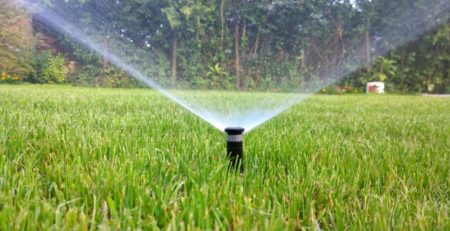Sustainable Gardening Practices: Lessons from the Online Gambling Industry for Eco-Friendly Growth
Sustainability has become a priority in nearly every industry, from agriculture to technology. Surprisingly, the online gambling industry has emerged as an unlikely source of inspiration for eco-friendly practices. With its innovative use of resources and focus on efficiency, this digital sector offers valuable insights that can be applied to sustainable gardening.
Both gardening and online gambling rely on systems that balance input and output for long-term success. By adopting strategies like resource optimization and energy efficiency, gardeners can create thriving ecosystems while minimizing their environmental impact. The parallels might seem unexpected, but they highlight how diverse industries can share common ground in sustainability. Similarly, the Evolution of online casinos showcases how this industry has adapted over time, embracing technological advancements, sustainability practices, and responsible gaming initiatives to create a more balanced and sustainable environment for both players and operators.
Exploring these lessons reveals how technology-driven approaches can transform traditional gardening methods. From smart resource management to innovative problem-solving, sustainable gardening practices inspired by the online gambling industry could pave the way for greener, more efficient gardens. It’s a surprising connection with powerful potential.
Understanding Sustainable Gardening Practices
Sustainable gardening focuses on minimizing waste, conserving resources, and creating self-sufficient ecosystems. These practices involve using natural methods to cultivate thriving gardens while reducing environmental impact. By integrating elements like resource recycling and smart water usage, sustainable gardening enhances biodiversity and promotes ecological balance.
Central to this approach is soil health management. Healthy soil improves plant growth and reduces dependency on chemical fertilizers. Composting organic waste, such as kitchen scraps or yard debris, enriches the soil with essential nutrients. Cover crops help prevent erosion and maintain soil fertility, ensuring long-term productivity.
Water conservation is another core element. Techniques like drip irrigation, rainwater harvesting, and drought-resistant plant selection maximize water efficiency. Native plants adapt better to local climates, requiring less water and maintenance.
Integrated pest management (IPM) reduces harmful chemical pesticide use. IPM strategies include introducing natural predators, using crop rotation, and applying organic repellents. Companion planting, where specific plants deter pests for others, also protects gardens from infestations.
Adopting sustainable gardening involves energy-efficient practices. Solar-powered garden lights, minimal use of machinery, and renewable materials like bamboo for structures reduce carbon footprints. These methods create gardens that align with ecological principles.
Key Practices in Sustainable Gardening
| Practice | Benefit |
|---|---|
| Composting | Reduces waste, enriches soil nutrients |
| Rainwater Harvesting | Conserves water for irrigation |
| Native Plant Cultivation | Enhances biodiversity, lowers maintenance |
| Integrated Pest Management | Cuts chemical use, protects ecosystems |
For further reading on eco-friendly strategies, visit Environmental Protection Agency – Water-Efficient Gardening.
Unexpected Parallels Between Gardening and Online Gambling
Sustainable gardening and the online gambling industry share surprising commonalities, particularly in their approaches to strategic planning, resource management, and balancing risk and reward. These practices reveal valuable pathways toward sustainability.
Strategic Planning
Both sectors rely on meticulous strategic planning to enhance sustainability. Gardeners carry out practices like selecting native plants and rotating crops to minimize chemical reliance and manage resources effectively. Similarly, online casinos adopt energy-efficient data centers and renewable energy sources to reduce carbon emissions. Each approach involves long-term foresight to achieve eco-friendly outcomes.
Resource Management
Effective resource management is central to both gardening and online gambling. Gardening practices include utilizing rainwater systems, composting, and preserving soil health to conserve resources and minimize waste. Online casinos reduce energy use with smart server management and hardware optimization. Digital payment methods, including eco-friendly cryptocurrencies with proof-of-stake mechanisms, further align with sustainable practices.
Risk and Reward Balance
Balancing risk and reward is critical in gardening and online gambling. Gardeners manage weather, pests, and diseases by diversifying plant types and adopting adaptive techniques. In online gambling, operational risks like energy costs and regulatory challenges are addressed by investing in green technologies. Both industries focus on short-term efforts that offer long-term environmental and economic benefits.
| Key Comparison Areas | Gardening | Online Gambling |
|---|---|---|
| Strategic Planning | Crop rotation, native plants | Energy-efficient data centers |
| Resource Management | Composting, rainwater harvesting | Smart server management |
| Risk and Reward Balance | Diversified planting, pest management | Green technologies, eco-friendly payments |
For a broader understanding of sustainable practices, visit EPA Sustainability Approach.
Lessons the Gardening World Can Learn from the Online Gambling Industry
The strategies employed by the online gambling industry provide a framework that sustainable gardening can adopt. Leveraging data, community participation, and long-term sustainability principles can help enhance gardening practices.
Using Data-Driven Decisions
The online gambling industry uses advanced analytics to tailor user experiences and forecast trends. In sustainable gardening, data plays a similar role in optimizing processes. Soil composition and climate data allow gardeners to select plants suited for specific conditions. This reduces resource wastage on plants unlikely to thrive. Weather predictions guide irrigation and fertilization schedules, improving water and nutrient efficiency. Also, analyzing water usage patterns helps balance resource allocation much like how online platforms manage operational inputs.
Fostering Community Engagement
Community engagement remains a pillar of sustainable practices in gardening and online gambling. Gamification techniques like tracking progress on virtual planting projects or integrating reward systems enhance participation. For instance, leaderboards and rewards for achieving sustainability milestones can improve local gardening initiatives. Forums and online workshops connect gardeners to exchange tips, experiences, and sustainable crafting solutions. Integrating these platforms fosters education and a collective sense of achievement, mirroring the collaborative strategies in online gaming communities.
Promoting Long-Term Sustainability
Sustainability principles also align with long-term gaming strategies focused on retention and responsibility. Organic gardening techniques like crop rotation and natural pest control support long-term soil health. Biodiversity strategies such as companion planting replicate ecological balance, making gardens more resilient. Interactive tools, such as mobile apps or virtual simulations, merge education with accessibility to expand sustainable gardening practices. These innovations function like responsible gaming campaigns, promoting awareness and proactive approaches to long-term goals.
Comparative Practices: Online Gambling vs. Sustainable Gardening
| Feature | Online Gambling Innovations | Gardening Applications |
|---|---|---|
| Data Usage | Analytics for user optimization | Soil and climate analysis |
| Community Features | Leaderboards and forums | Gamified gardening tools |
| Sustainability Focus | Renewable energy and retention | Organic and biodiverse gardening |
For more insights into how digital platforms drive sustainable advancements, refer to United Nations Sustainable Development Goals (UN SDG).
Practical Steps for Implementing Sustainable Gardening Practices
Implementing sustainable gardening practices combines resource optimization, smart technologies, and ecological balance to create efficient, eco-friendly gardens.
Efficient Use of Resources
Effective resource management is critical for sustainable gardens. Water-saving techniques like drip irrigation and rainwater harvesting minimize waste while ensuring plants receive adequate hydration. Composting and organic matter maintain soil health, eliminating dependency on synthetic fertilizers. Solar-powered garden lights and tools reduce energy consumption, aligning with eco-conscious gardening methods.
| Sustainable Practice | Benefit |
|---|---|
| Drip Irrigation | Reduces water wastage and ensures efficiency |
| Rainwater Harvesting | Provides renewable water sources |
| Composting | Enhances soil fertility and reduces waste |
| Solar-Powered Tools | Cuts down on energy use and carbon footprint |
Embracing Technology in Gardening
Integrating technology into gardening practices streamlines processes and improves efficiency. Smart gardening tools such as soil moisture sensors and temperature monitors provide real-time data, helping gardeners make informed decisions. Online platforms, like Gardens That Matter, offer tutorials and resources to educate users on eco-friendly methods. Interactive tools like horticultural games foster interest and understanding around ecological gardening practices.
Building a Sustainable Ecosystem
Sustainable ecosystems thrive on diversity and ecological balance. Community gardens often lead initiatives by encouraging biodiversity, using native plants, and promoting companion planting to naturally control pests. Natural composting methods support soil integrity, while eco-balanced practices ensure sustainable pest control. Public participation programs provide education on vital techniques for creating self-sustaining garden ecosystems. Learn more about sustainable practices from the NRDC (Natural Resources Defense Council).
Challenges and Opportunities Ahead
Sustainable gardening inspired by the online gambling industry’s practices faces several challenges, but these also open doors for new opportunities. Resource allocation is among the main obstacles. Implementing advanced energy-efficient technologies, gamified platforms, or eco-friendly infrastructure needs significant financial and technical support. Community gardens must explore partnerships or funding avenues to overcome this hurdle. Online platforms and government grants can serve as key enablers in this aspect.
Behavioral change also presents a challenge. Shifting individual and community habits toward eco-friendly methods takes time. Educational campaigns, combined with gamification, can aid in gradually encouraging sustainable behaviors. For instance, gamified challenges tracked through apps can motivate users to adopt practices such as composting and water conservation.
Even though these issues, opportunities for engagement and growth stand out. Gamification already contributes to a 40% rise in volunteer participation for urban agriculture efforts. Extending this approach can attract broader demographics while fostering environmental awareness. Virtual global networks also provide an avenue to share ideas or replicate success stories in diverse regions, enhancing collaboration in sustainable gardening.
Interactive and gamified models of learning offer immense potential to reach a global audience. Educational platforms combining entertainment and practical advice can lead to a stronger focus on urban green spaces and improved environmental literacy.
Comparison of Sustainable Gardening Factors Inspired by Online Gambling
| Aspect | Inspiration from Online Gambling | Application in Sustainable Gardening |
|---|---|---|
| Resource Management | Energy-efficient technologies | Solar-powered irrigation systems |
| Carbon Offset Programs | Tree-planting initiatives | Local reforestation projects |
| Community Engagement | Gamification for user engagement | Gamified platforms for gardening activities |
For a deeper exploration of gamified solutions improving social initiatives, see World Economic Forum insights on gamification.
Conclusion
Sustainable gardening has the potential to thrive by embracing innovative strategies from unexpected industries like online gambling. By adopting data-driven approaches, enhancing community engagement, and leveraging technology, gardeners can create more efficient and eco-friendly ecosystems. These shared principles highlight the importance of strategic planning and resource optimization in achieving long-term sustainability.
As gardeners explore these methods, they not only contribute to environmental preservation but also foster stronger connections within their communities. The fusion of technology, education, and ecological responsibility offers endless opportunities to redefine gardening practices for a greener future.










